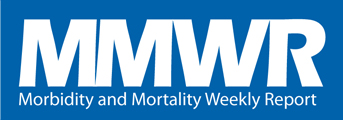MMWR News Synopsis for November 24, 2017
Smoke-Free Policies in the World’s 50 Busiest Airports – August 2017
CDC Media Relations
404-639-3286
Smoke-free policies issued by national, city, or airport authorities can protect employees and travelers from secondhand smoke inside airports. The U.S. Surgeon General has concluded that there is no risk-free level of exposure to secondhand smoke. Previous CDC reports on airport smoke-free policies found that most large-hub airports in the United States prohibit smoking; however, the extent of smoke-free policies at airports globally has not been assessed. The findings from this study show that among the world’s 50 busiest airports, nearly half – including five of the 10 busiest airports – completely prohibit smoking indoors. The remaining 27 airports continue to allow smoking in designated smoking areas. The 2006 Surgeon General’s report states that eliminating smoking in all indoor spaces is the only way to fully protect nonsmokers from involuntary exposure to secondhand smoke.
CDC Grand Rounds: Improving the Lives of Persons with Sickle Cell Disease
CDC Media Relations
404-639-3286
Researchers, clinicians, and the sickle cell disease (SCD) community have made advances in understanding, treating, and preventing SCD, yet challenges in managing and treating SCD continue. Approximately 100,000 Americans have SCD, a genetic red-blood-cell disorder that causes pain, organ damage and other serious health complications. This article recognizes previous advances in understanding, treating, and preventing SCD and identifies current challenges.
Public Health Economic Burden Associated with Two Single Measles Case Investigations — Colorado, 2016–2017
CDC Media Relations
404-639-3286
Even a single measles case is expensive and burdensome to public health agencies. Measles can be prevented by a safe and effective vaccine. Measles outbreaks in the United States occur after introduction from international travelers and can be amplified in undervaccinated communities. Effective interruption of transmission requires timely case investigation. The Tri-County Health Department in the metropolitan Denver area assessed the total economic burden of two measles case investigations. Each case exposed hundreds of people, prompting a complex and coordinated response by multiple public health agencies. Public health costs of disease investigation in the first and second case were an estimated $49,769 and $15,573, respectively. Single measles cases prompted extensive public health action and were costly and resource intensive for local public health agencies.
Progress Toward Poliomyelitis Eradication – Pakistan, January 2016-September 2017
CDC Media Relations
404-639-3286
Interruption of wild poliovirus (WPV) circulation, and therefore eradication, is within reach in Pakistan. Despite progress made during 2016, virus is still detected in the environment of high-risk areas in the country, and children continue to be missed by vaccination efforts. These factors pose a challenge to the goal of achieving zero cases. To reach this goal, Pakistan must continue heightened polio surveillance, respond aggressively to any new cases, and vaccinate all children. Pakistan is one of three countries – including Afghanistan and Nigeria –where WPV has never stopped circulating. During 2017, Pakistan made significant improvements to its polio eradication program. As a result, the number of reported polio cases decreased by 69 percent, with five WPV cases compared to 16 cases reported during the same period in 2016. Despite the decrease, the virus continues to circulate in certain areas and children continue to be missed by immunization campaigns.
Notes from the Field:
- None
Quick Stats:
- Percentage of Visits to Office-Based Physicians by Adults Aged ≥18 Years for Diabetes Mellitus, by Sex and Age — National Ambulatory Medical Care Survey, 2015
###
U.S. DEPARTMENT OF HEALTH AND HUMAN SERVICES
CDC works 24/7 protecting America’s health, safety, and security. Whether diseases start at home or abroad, are curable or preventable, chronic or acute, stem from human error or deliberate attack, CDC is committed to respond to America’s most pressing health challenges.

